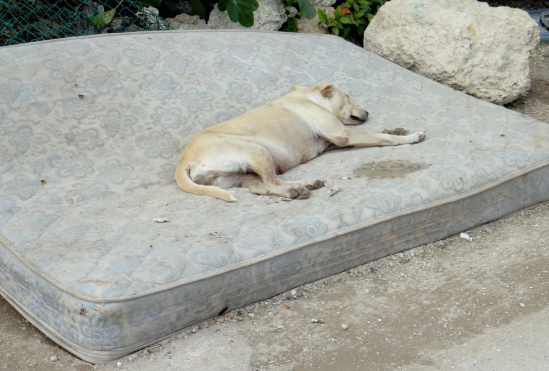An agnostic, dyslexic insomniac, according to my friend Bill, is someone who lies awake at night worrying if there is a dog. I wrote about agnostics and their ilk last week; I’ll save dogs (most of whom I relate to better than I do most people) for another time. Which leaves insomnia, about which I do have a point of view.
We’re seeing a tendency to pathologize what were normal sleep patterns 100-odd years ago, prior to the mass introduction of electric light (between 1890 and 1920) changed everything. Before that, our ancestors typically went to bed when it got dark and rose around dawn. They didn’t just sleep the night away, however. Based on letters and documents going back hundreds of years, they woke sometime after midnight, spent a couple of hours or so talking, making love, eating, praying, visiting neighbors and—if they were literate and could afford candles—reading and writing. Then they enjoyed their second sleep; the phrase “second sleep” is so common in writings of a few hundred years ago that no one thought to define it or explain it. It just was.
I explored this at some length in my Field Notes column in the Journal, under the title “Sleep, Pray, Sleep“, basing my information on a great book by social historian Roger Ekirch At Day’s Close: Night in Times Past.
Ekirch’s other main finding is that people back then took their time falling asleep. It was normal to spend an hour, not tossing and turning, but allowing sleep to come slowly and naturally, skittering in the twilight zone between wakefulness and sleep. They didn’t have Ambien and suchlike back then, but they didn’t need it either, having no reason to think their slow descent into sleep was anything but routine.
In today’s “time is money” era, we’ve been led to believe sleep should come readily and efficiently within the first few minutes of getting into bed. And that lying awake in the middle of the night is a sign of something bad—if I’m in bed and it’s the middle of the night, I should be sleeping, dammit.
The result has been to both pathologize anything other than single-period sleep; and to turn us into a nation where many of us think of sleep as a luxury or distraction (—if we can’t monetize it, let’s minimize it!). Before electric light, people slept for 8-9 hours. In 2001, according to the National Sleep Foundation, 7.0 hours was normal in the U.S. This year, the average American sleeps for an average of 6.7 hours.
In a future piece, I’ll discuss the health implications of this trend, and why pharmaceutical sleep aids aren’t the answer. It ain’t pretty.
###
Barry Evans gave the best years of his life to civil engineering, and what thanks did he get? In his dotage, he travels, kayaks, meditates and writes for the Journal and the Humboldt Historian. He sucks at 8 Ball. Buy his Field Notes anthologies at any local bookstore. Please.

CLICK TO MANAGE